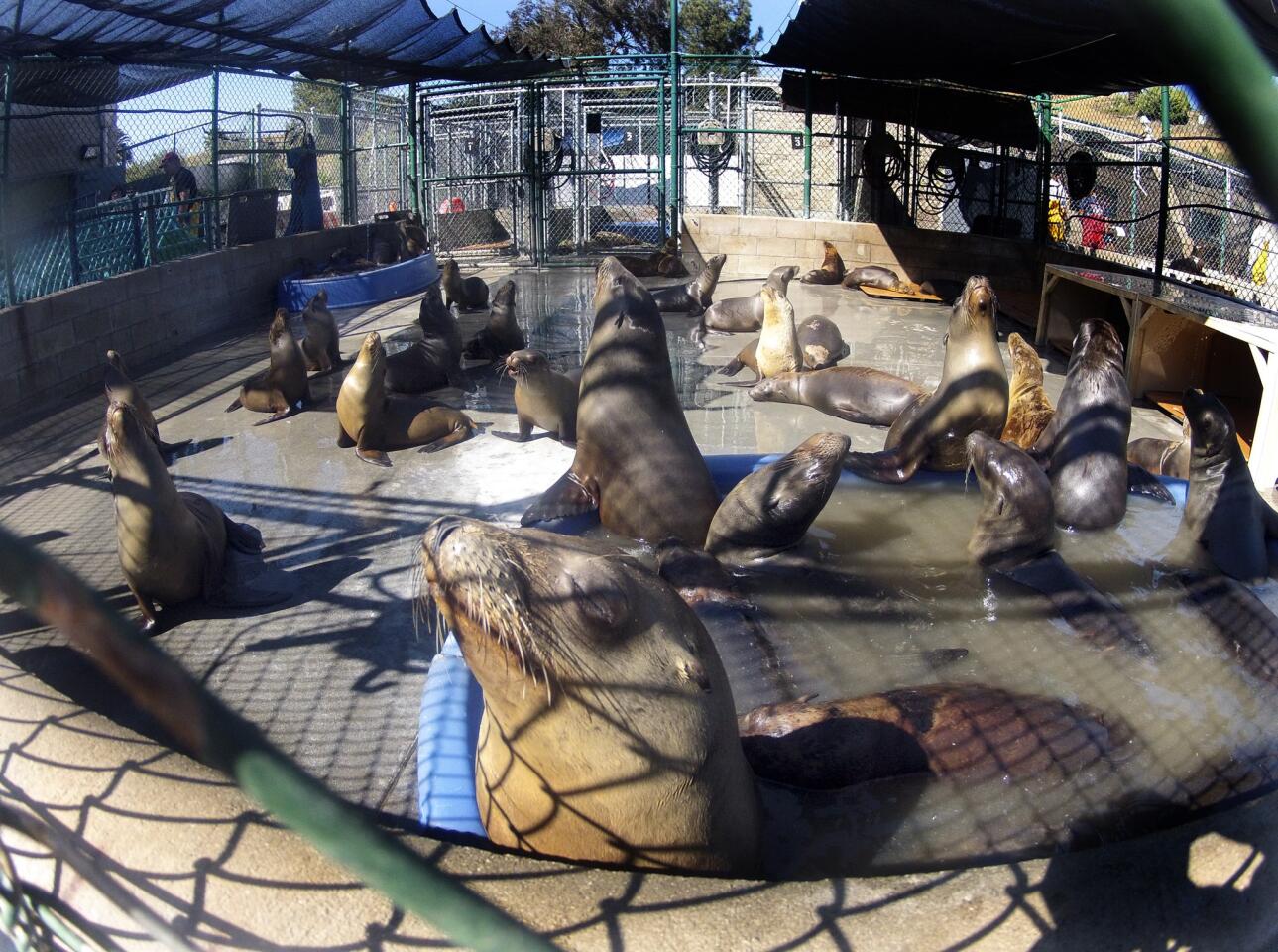Hundreds of sea lion pups have been found stranded on the Southern California coast, an alarming trend that has left researchers and rescuers on the front line struggling to come up with an explanation. As the summer nears, they fear it will only grow worse.
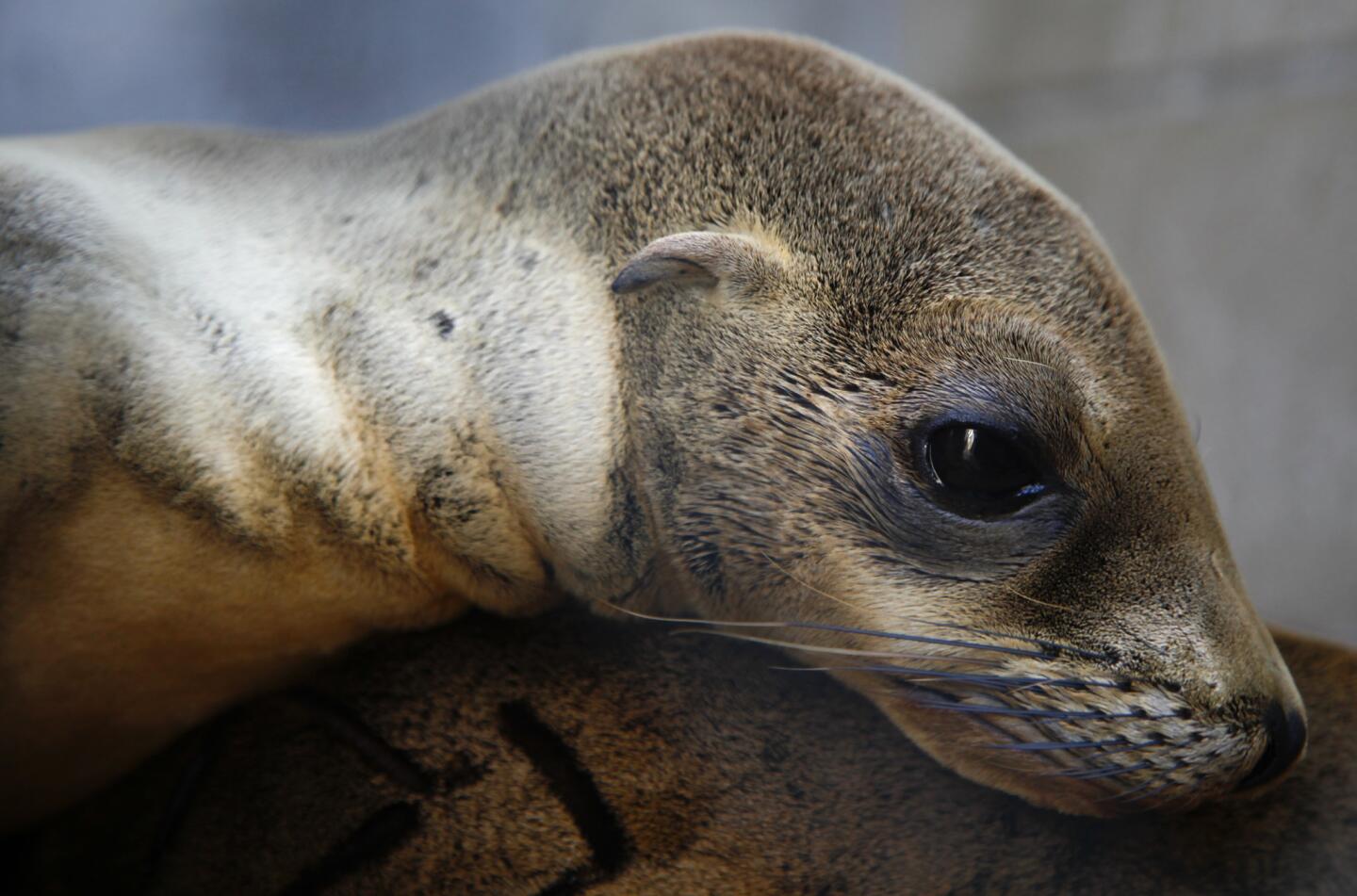
An emaciated sea lion pup huddles closely with another sick pup while undergoing critical care at the Marine Mammal Care Center. (Mark Boster / Los Angeles Times)
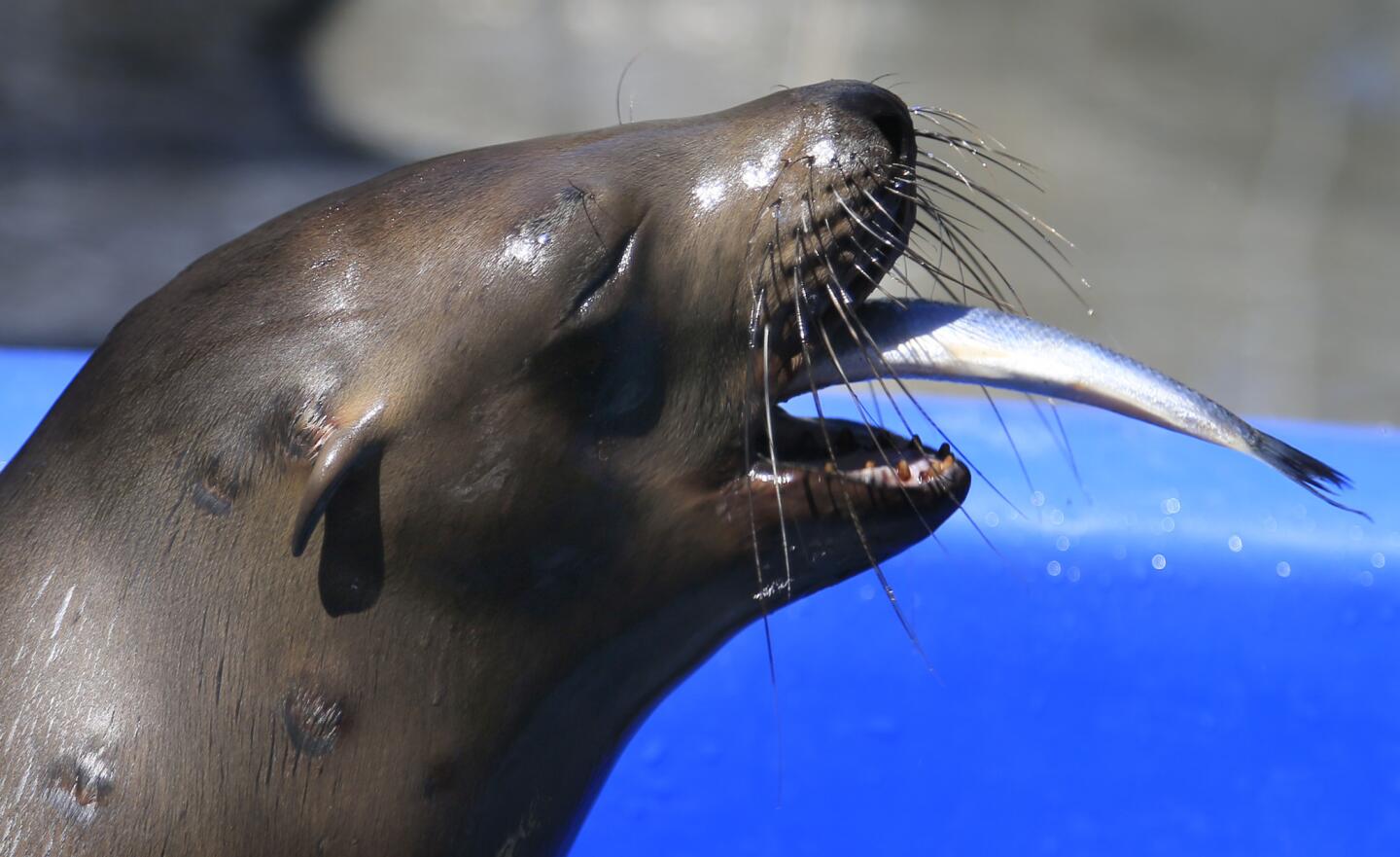
One of the sick sea lions recovering at the Marine Mammal Care Center in San Pedro eats solid food, a sardine, in his cage. (Mark Boster / Los Angeles Times)
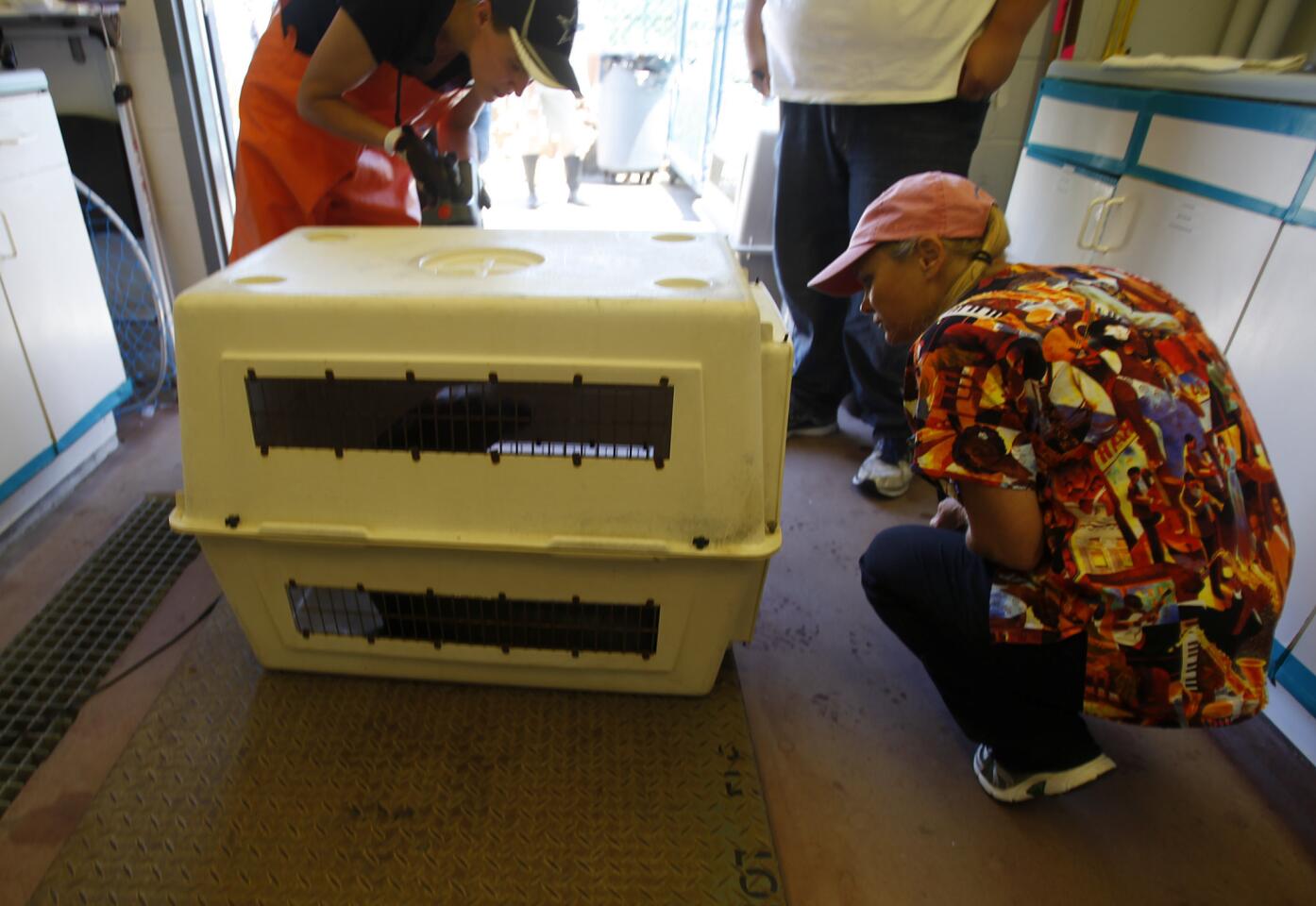
Veterinarian Dr. Lauren Palmer, right, checks on one of her sick sea lion pups at the Marine Mammal Care Center. Hundreds of sea lions, young and old, have been found stranded along the Southern California coast suffering from numerous ailments and malnutrition. (Mark Boster / Los Angeles Times)
Advertisement
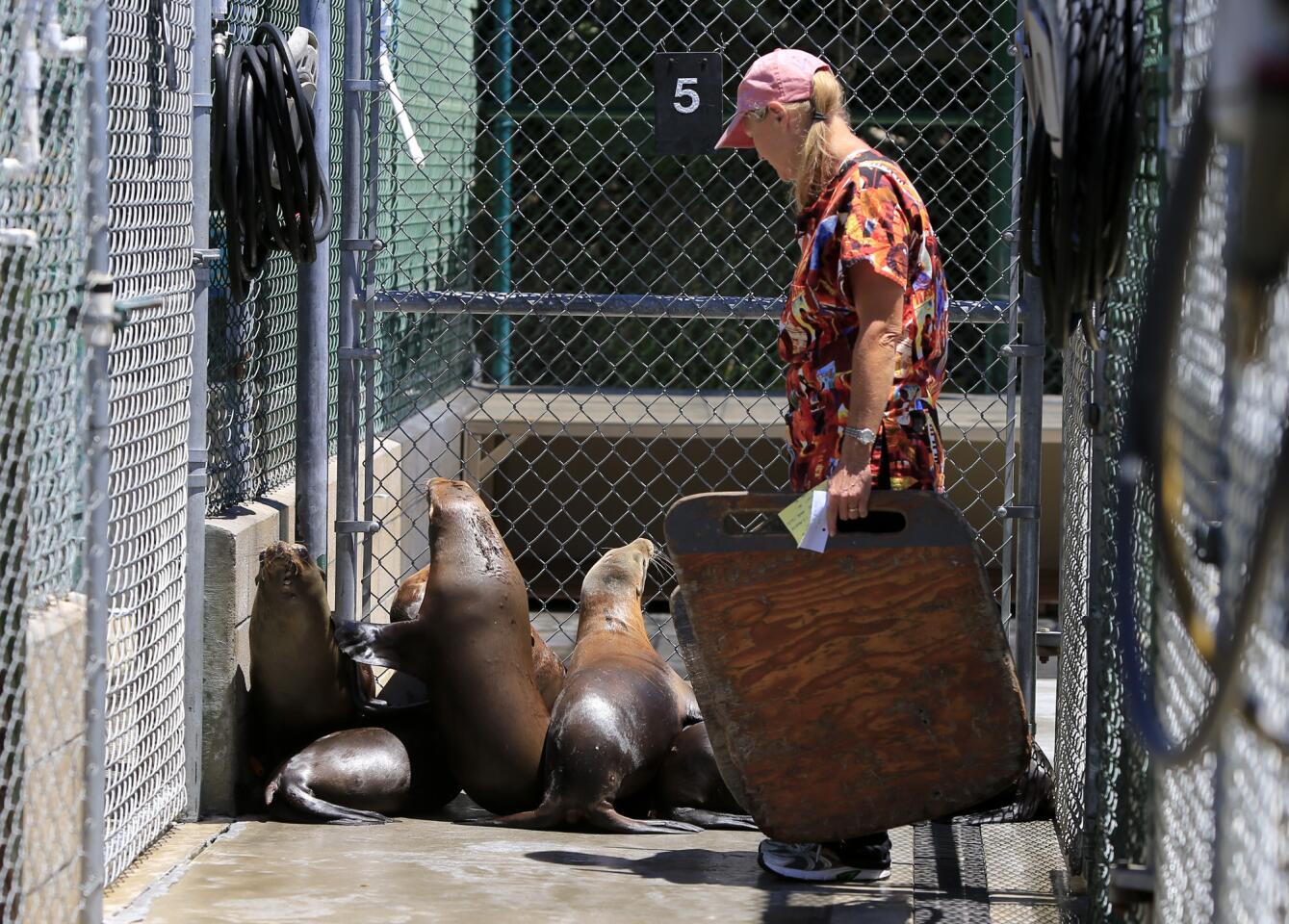
Veterinarian Dr. Lauren Palmer checks in on several of her sick sea lions at the Marine Mammal Care Center. (Mark Boster / Los Angeles Times)
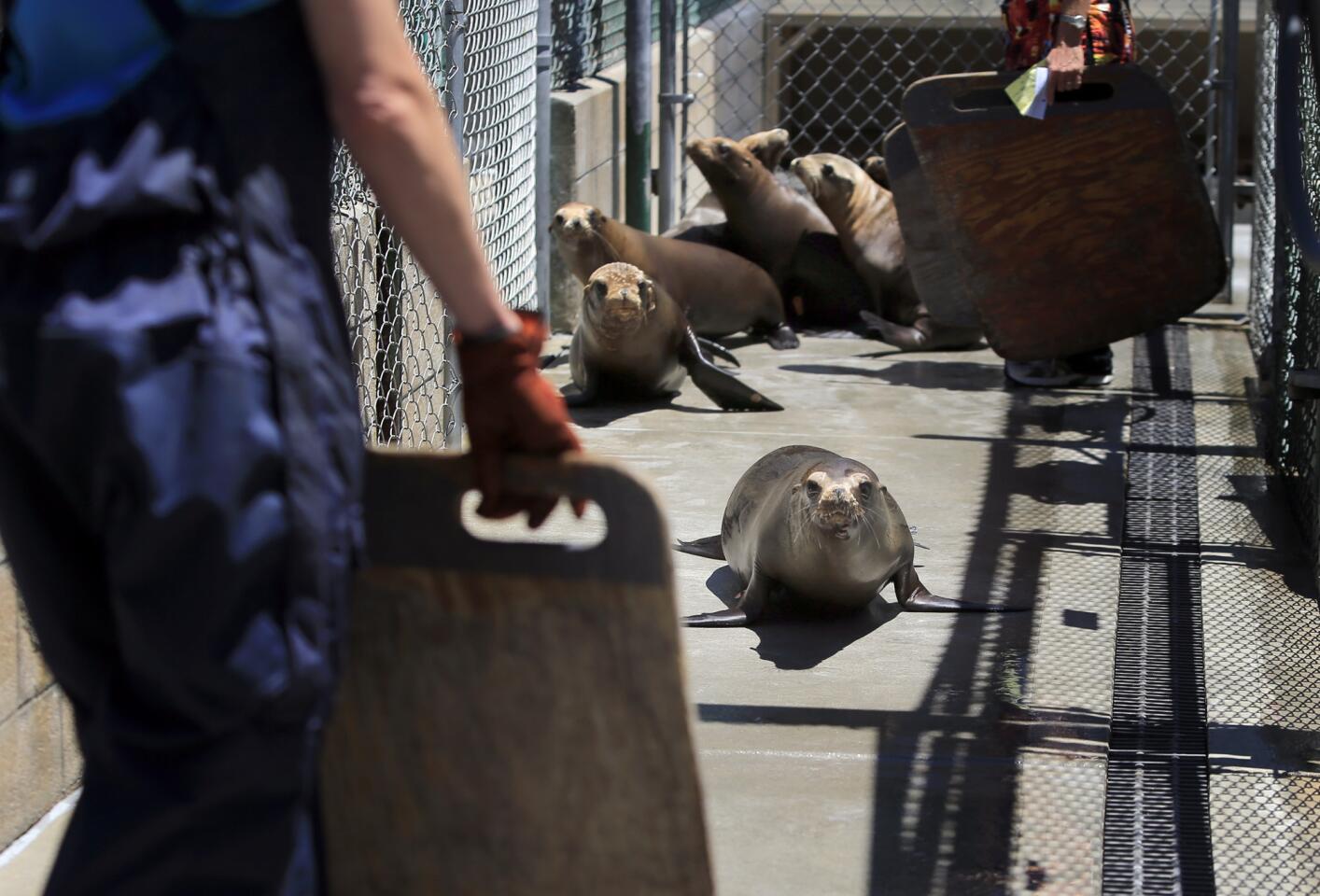
Several of the sick sea lions at the Marine Mammal Care Center in San Pedro are herded with protective boards into an area for feeding and evaluation. (Mark Boster / Los Angeles Times)
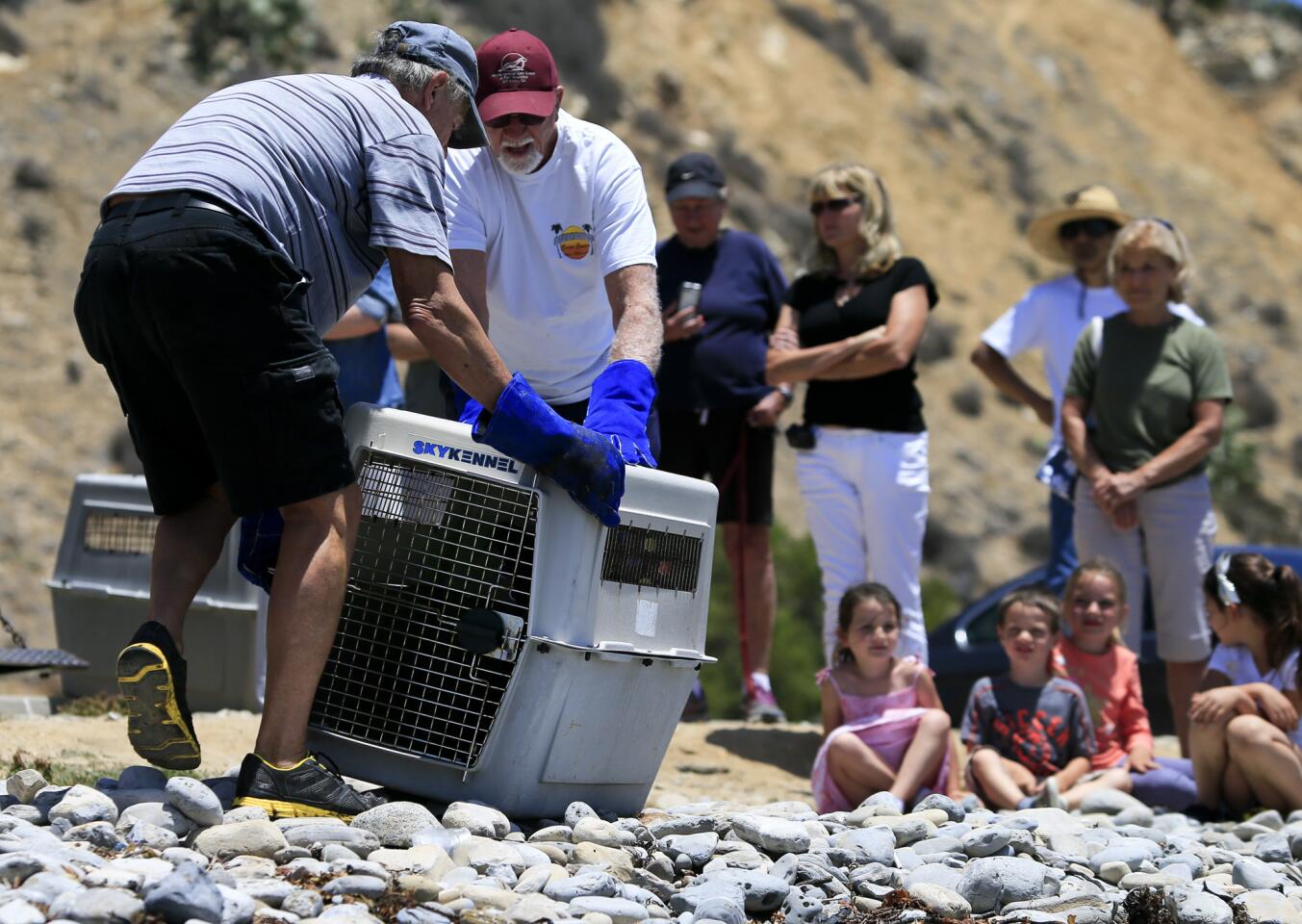
Marine biologist Christopher Nagle, second from left, helps to guide the kennel carrying a Northern elephant seal at White Point/Royal Palms Beach in San Pedro for an afternoon release as a small crowd gathers. (Mark Boster / Los Angeles Times)
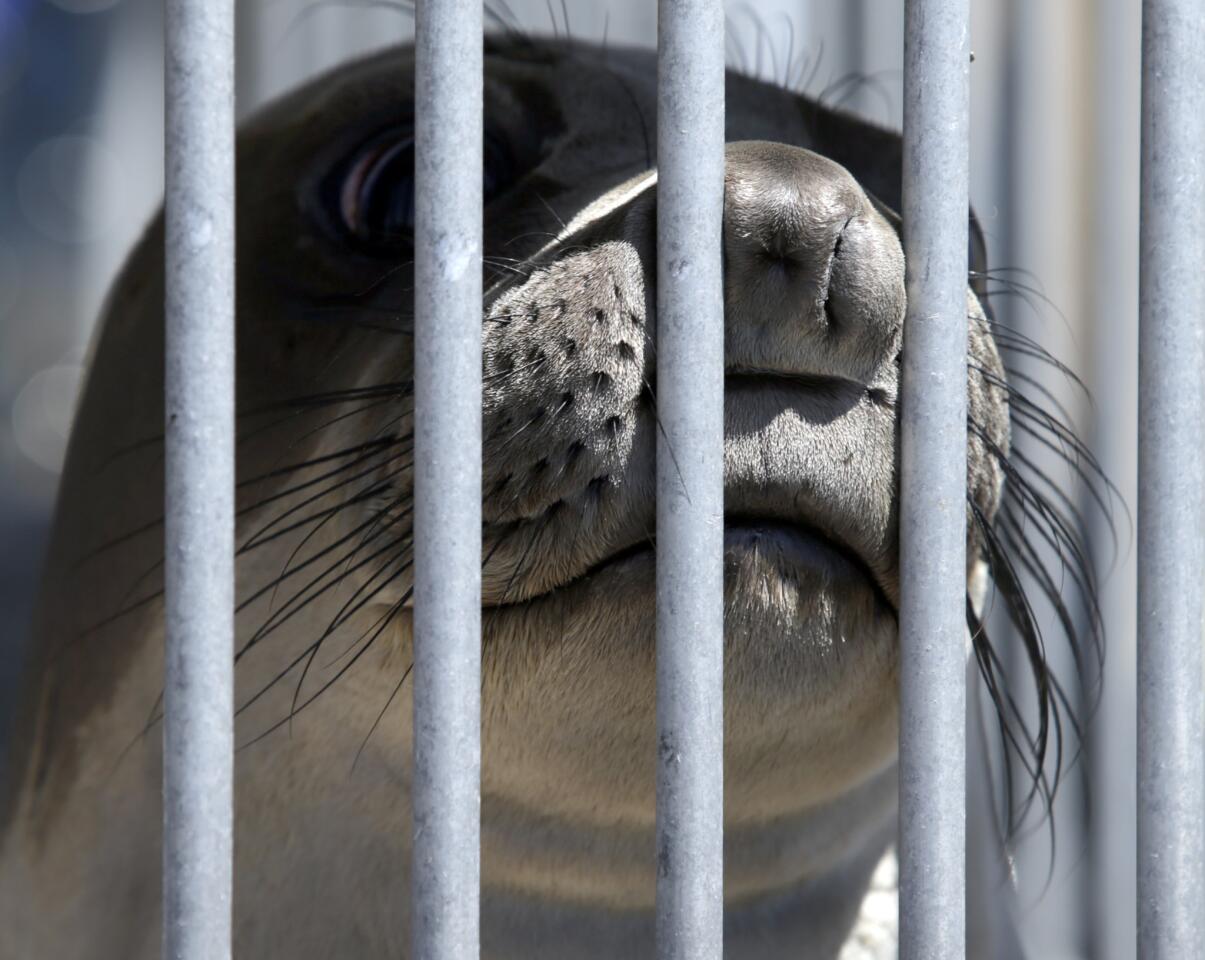
A Northern elephant seal awaits release into the ocean at White Point/Royal Palms Beach in San Pedro. (Mark Boster / Los Angeles Times)
Advertisement
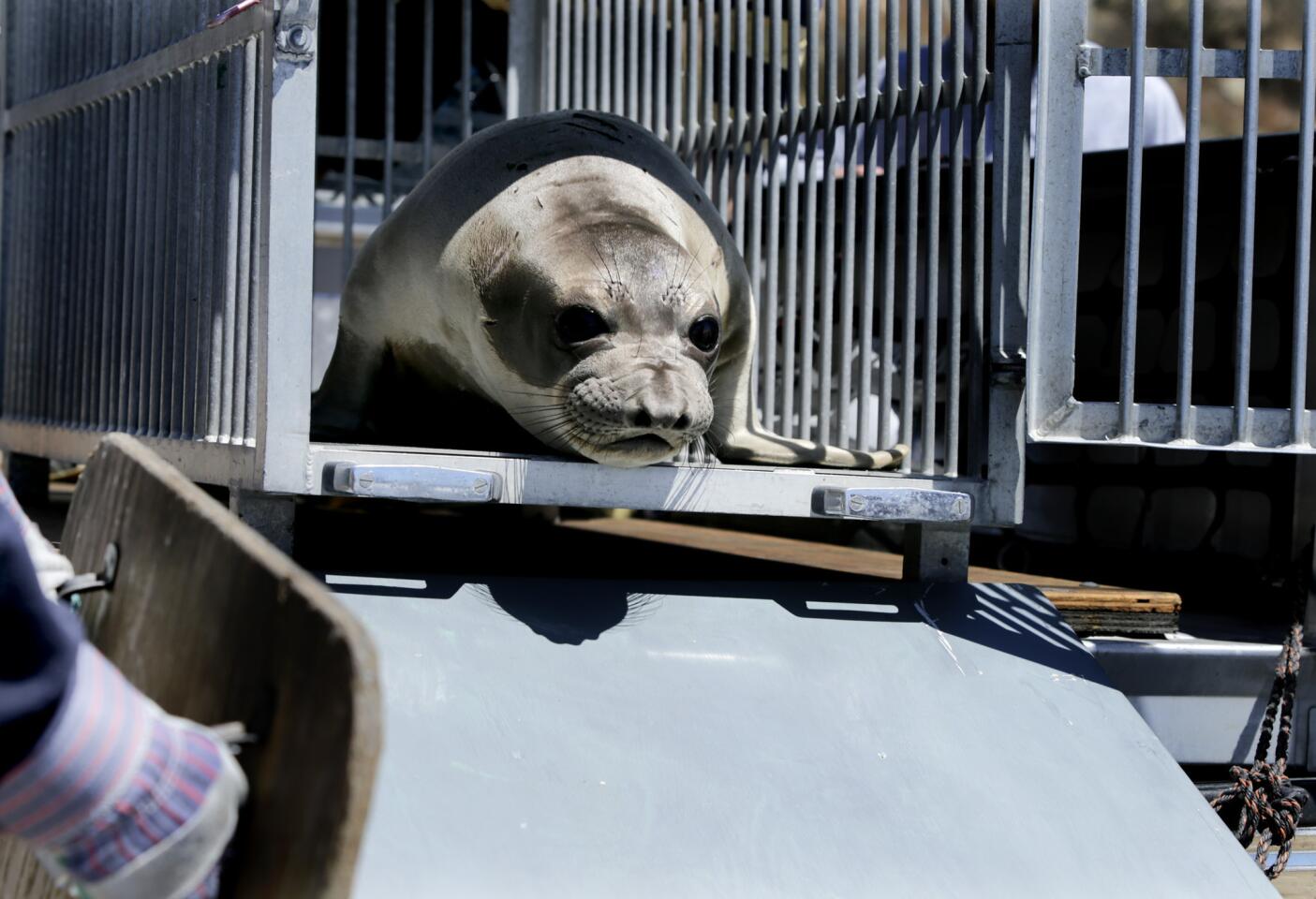
A Northern elephant seal hesitates for a moment before being guided to the water at White Point/Royal Palms Beach in San Pedro for an afternoon release. (Mark Boster / Los Angeles Times)
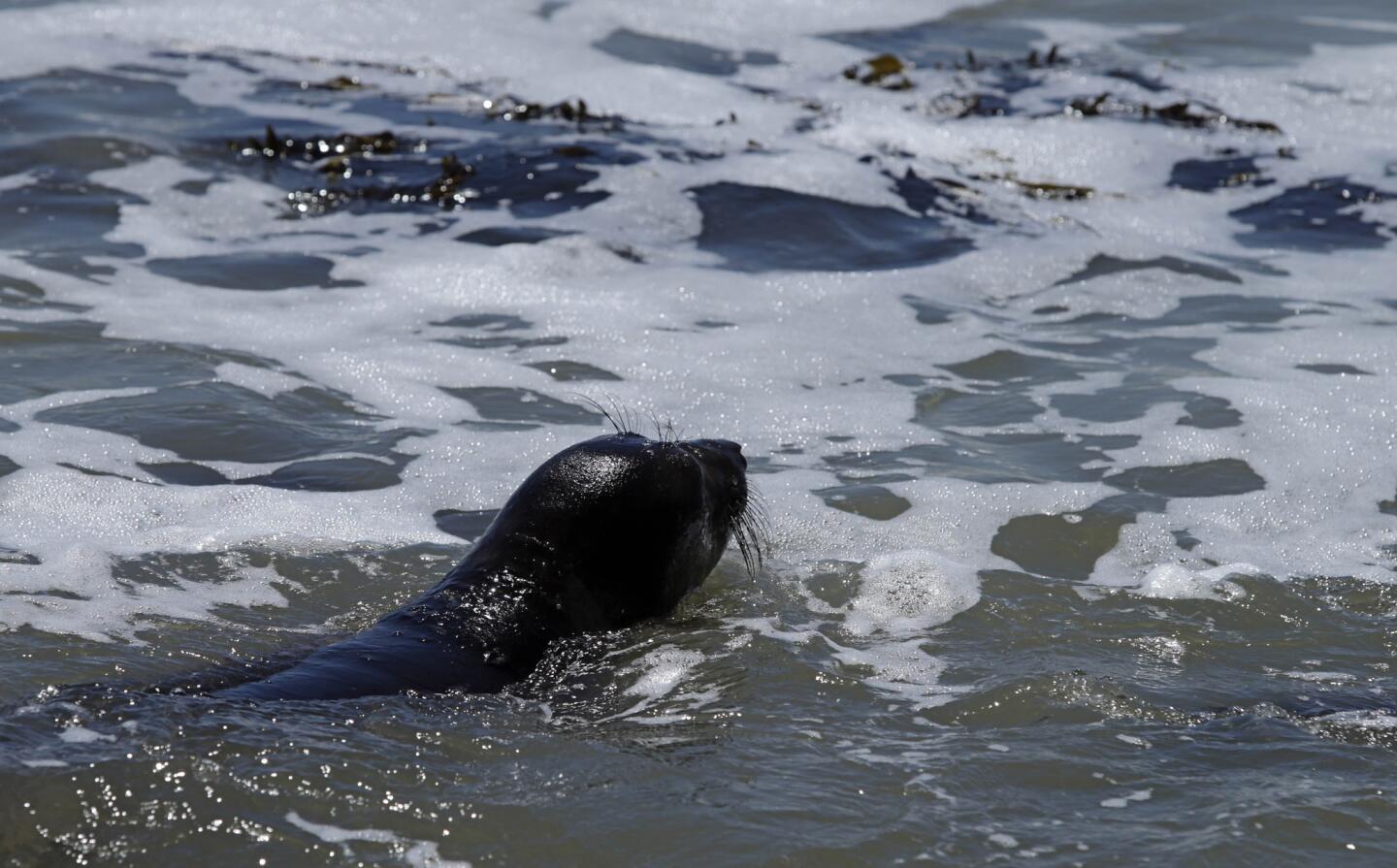
A sea lion reaches the water at White Point/Royal Palms Beach after being rehabilitated at the Marine Mammal Care Center in San Pedro. (Mark Boster / Los Angeles Times)
